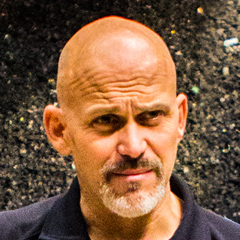Everybody on a live-fire range is gonna know what "cease fire" means. Now, you may have other code words or special safety words that you use to stop drills, for example, we use the word "stop" many times to stop a drill that doesn't necessarily involve shooting in any given moment, but we want everyone to freeze. "Cease fire" specifically means stop shooting. And when you have multiple people on the line, especially people that aren't part of your training group, maybe you're at a public range, and you're in one area, and there's other people on either side of you, and you need everyone to stop shooting, "cease fire" is the universal command, and you wanna call it out loud and clear, and repeat it until everyone has stopped shooting. Now, when are you gonna "cease fire"? Well, I'll tell you one time that I see sometimes brushed over that you can't afford to let go, and that's when there's a negligent discharge. As strange as it seems, there are videos out there on the Internet that I've seen of students clearly having negligent discharges in the middle of training or practice, and just sort of shaking their head, or looking at the gun, and then going right back to what they were doing, without a "cease fire". "Cease fire" is an incredibly important command at this moment to get everybody down on one page and make sure that everyone is safe, first of all. Second, that you understand what happened, so that it won't happen again. And three, honestly, just to make sure everybody takes a deep breath, because that student that had the negligent discharge, or anyone who saw the student have a negligent discharge, may actually then be so nervous that they screw something else up, and these compounding problems are what lead to someone getting hurt. Now, let's go back to that. The first reason we're gonna call a "cease fire" is, make sure no one was hurt. Remember, if the gun goes off when you weren't expecting it to, if the gun goes off when one of your training partners or students wasn't expecting it to, then the gun may not have been pointed in a direction that would safely contain that bullet. And just because you and your student are fine in the middle of that drill, doesn't mean that that gun wasn't pointed in a direction up, down, or sideways, that let that bullet hurt someone else. Carrying on with the drill while someone else is bleeding out isn't the position you wanna be in, by any means. So again, "cease fire" to make sure everybody else is okay. The second reason you wanna "cease fire" is obviously to figure out what happened. You wanna be able to go back and immediately try to reconstruct the situation that occurred, so that it doesn't happen again. Obviously, there's some learning potential there, but first and foremost is the safety of everyone else in the environment, and that student. It may have been a gear-related issue, it may have been a misunderstanding of technique, it may be a problem the student's having interacting with their gun in that drill, and you wanna put that to a stop as quickly as you can. So that "cease fire" will allow you to identify the problem. The third reason that you wanna call a "cease fire" is to let everyone catch their breath. Make sure that whatever happened in that moment hasn't created some anxiety, nervousness, insecurity, or self-consciousness in that student, who knows they screwed up, so much that it's gonna distract them from being safe as that drill continues on. Or, maybe another person in that environment witnessed it, and they're going to get angry, distracted, or scared in those next few minutes, and do something else that's going to put themselves or other people in danger in the training environment. It surprises me that I even have to say this, but over the last year or two, I've seen enough videos of negligent discharges that were basically ignored, people carried on with the drill they were going through, carried on with their immediate endeavor, and they may have pondered the situation afterwards, but it was too late, as far as I was concerned. If there's a negligent discharge, "cease fire", get safe, and figure out what happened.

I am an RSO at my local outdoor range. An unfortunate incident occurred about a minute after I called a cease fire, checked clear with about 40 people downrange changing targets. A shooter approached his bench, picked up his single shot 22 rifle, loaded a round and shot it downrange, apparently thinking the line was hot. I was standing only five feet away with my back to him observing others on the line which highlights how fast a situation can change. Fortunately no one was hurt and have a few questions: * Within a second I realized what happened, secured his gun, shut down the line, watched for other danger signs and ejected him. What else should I have done? * Did his firing during a cease fire constitute a crime? * Although I immediately ejected him for life, should I have taken other action (i.e. call police?) * If someone had gotten injured/killed, what exactly is the liability of the RSO, the range, etc.? * What can I do to make sure this never happens again?